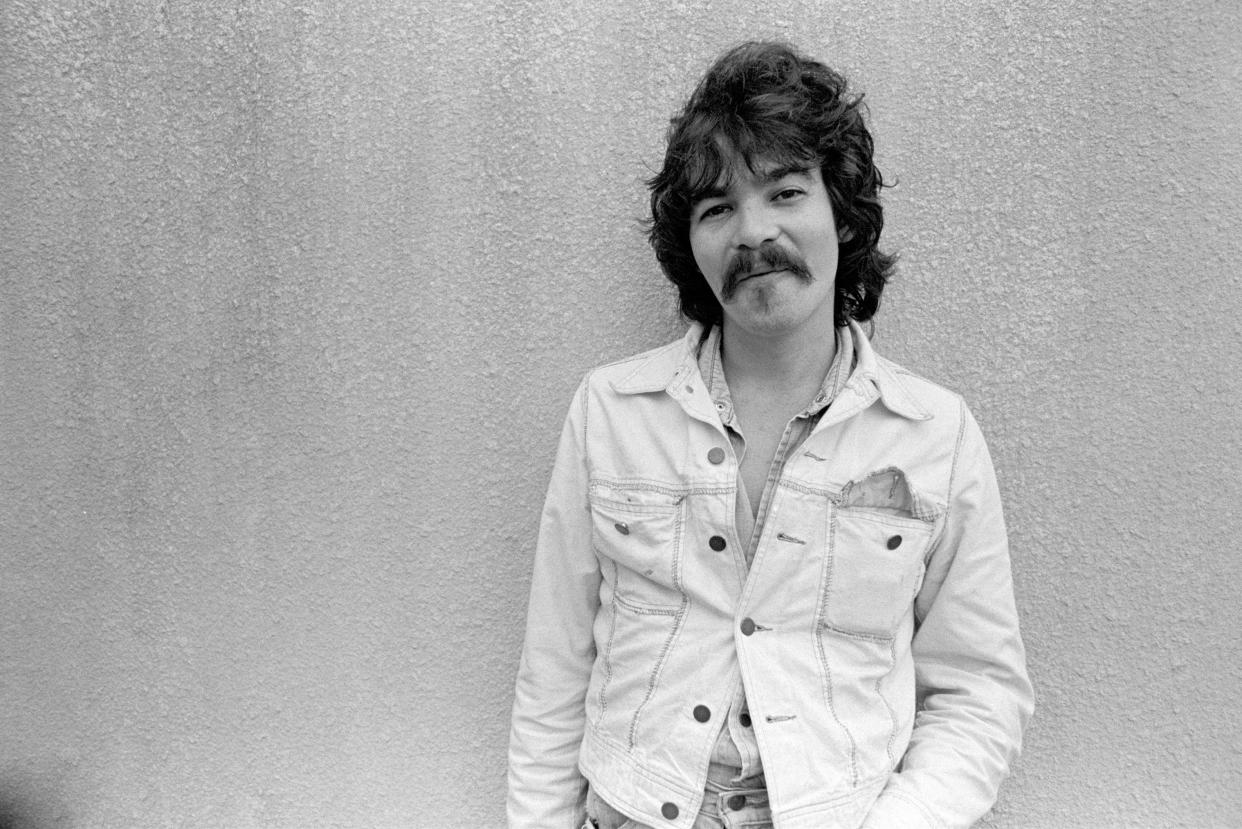John Prine, Americana’s ‘Singing Mailman,’ Dies at 73 of Coronavirus Complications

Aside from mimicking the pop songs I heard playing on the radio, John Prine songs were the first songs I ever sang—pressed into service by my brother, then just back from Vietnam, and my sister, an earnest college-student acoustic-guitar strummer.
The one that has always stuck in my mind—a song far too heavy for a little boy with little knowledge of the world outside his small town—is the bitter, raging (and funny) “Your Flag Decal Won’t Get You Into Heaven Anymore.” Prine wrote it while working as a mailman in Maywood, Illinois, where he noticed that the people who were slapping American flag decals on everything in sight were the most vehement supporters of a war that was killing Americans every day. (“And your flag decal won’t get you into heaven anymore / They’re already overcrowded from your dirty little war / And Jesus don’t like killing no matter what the reason’s for / And your flag decal won’t get you into heaven anymore.”)
Prine died yesterday in a Nashville hospital from complications related to COVID-19. He was 73 and had been admitted to the hospital last month. (His wife announced on March 17 that she tested positive for the coronavirus following a European tour, and she has since recovered.) He leaves behind him an armada of grieving fans and fellow musicians—his admirers included the likes of Bob Dylan, Johnny Cash, Bruce Springsteen, Tom Petty, Kris Kristofferson, Bonnie Raitt, Bette Midler, Carly Simon, Joan Baez, and, more recently, Jason Isbell, Margo Price, Miranda Lambert, Sturgill Simpson, and Brandi Carlile.
The genre now known as Americana likely wouldn’t exist without him and his legendary body of work. “Sam Stone” in particular, a searing portrait of a PTSD-afflicted soldier returning home from Vietnam, is the kind of heartbreaking, totemic song most musicians dream about achieving one day. Prine tossed it off, along with a handful of other indelible compositions, for his first album. Dylan called his work “pure Proustian existentialism.” (In addition to “Sam Stone,” “Angel From Montgomery”—most famously covered by Raitt—is probably his best-known song.)
After gigging around the folk clubs of Chicago for a bit, Prine was essentially discovered by then local film critic Roger Ebert, who walked into a performance at the Fifth Peg one night and wrote a column the next day, “Singing Mailman Delivers a Powerful Message in a Few Words,” that launched Prine’s career. Kristofferson took him under his wing and put him on stage with him at New York’s the Bottom Line shortly thereafter, legendary Atlantic Records producer Jerry Wexler offered him a record deal the next day, and the rest is, literally, singer-songwriter history.
Over a career that spanned more than five decades, Prine was given virtually every award ever created for songwriters, including Grammys, lifetime-achievement honors, and Songwriters Hall of Fame inductions. In 1984, he left the major labels and started his own DIY version, asking fans to send in checks—something that succeeded enough for Sony to try to buy his label from him. (Prine, of course, refused.)
In 1997, Prine was diagnosed with cancer in his neck; after a successful surgery, which altered his appearance and his voice, he returned to touring and performing. A 2013 surgery to remove a cancerous spot on his lung sidelined him for only a few months. Just two years ago, he toured behind his album The Tree of Forgiveness on some of the biggest stages he’d ever graced, including Radio City Music Hall.
As Bruce Springsteen wrote last night after hearing the news, Prine was “a true national treasure and a songwriter for the ages.” Bon Iver’s Justin Vernon took the loss even more personally: “A simple majority of who I am as a person, let alone a musician, is because of John Prine,” Vernon wrote. “He is my number one.”
Originally Appeared on Vogue

